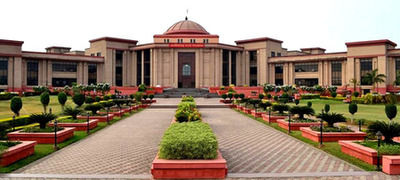Narendra Modi is attending the 2-day Shanghai Cooperation Organisation (SCO) summit in Tianjin, China, starting Sunday. His participation at the summit - and his first visit to China in seven years - comes at a time of a rapidly changing geopolitical environment. Even after becoming a full member in 2017, India has not been sure what priority SCO deserved. However, with various 'resets' and 'rethinks' underway, the situation may change.
Even India's SCO presidency in 2023 remained a low-key affair. With New Delhi focused on G20 presidency, SCO events were overshadowed by G20 activities. The summit was also reduced to a 2-hr virtual meeting. One of the reasons for this truncation was, of course, that relations with China were at an all-time low, especially after the 2020 Galwan clashes. Modi skipped the 2024 SCO Summit in Kazakhstan, with S Jaishankar filling in.
With frictions emerging in ties with the US, and a thaw of sorts in India-China relations, Modi's attendance at the Tianjin meeting will possibly be driven by an ambitious agenda. This visit will offer an excellent opportunity for a bilateral meeting with Xi Jinping.
With leaders from 20 countries participating, the Tianjin summit will be the largest SCO gathering so far. Along with leaders of its 10 member states, it will also host leaders from its dialogue partners and representatives of international organisations. The summit is also expected to adopt SCO's development strategy for the next decade.
Despite its expansion, SCO's core has remained Central Asia. Its earlier incarnation, the Shanghai Five, aimed to promote peace and stability in Eurasia, with a key objective of resolving border disputes. SCO offered China, Russia and the Central Asian states a delicate equilibrium amid shifting influences in Eurasia. India was never part of this balance, even though Central Asian countries recognised its potential as a countervailing factor.
This is one area where India needs to be proactive. Despite ambitious rhetoric, from the 2012 Connect Central Asia policy to the recent India-Central Asia dialogues, India remains a marginal player in the region. SCO is the only platform that brings together major Central and South Asian countries under one framework.
The US' New Silk Road Strategy, which aimed to link Central and South Asia through Afghanistan and was strongly supported by India, collapsed after the US withdrawal from Afghanistan. Conceptually, however, the strategy was sound, and some of its ideas are now being advanced by China through its BRI, in which India has not participated. In the SCO's Delhi Declaration of 2023, India was the only member that did not endorse the BRI.
Recently, Afghanistan, China and Pakistan agreed to extend China-Pakistan Economic Corridor (CPEC) to Kabul. The second phase of CPEC is also expected to be launched on sidelines of the SCO summit. India, obviously, has objections to CPEC as it violates its sovereignty and territorial integrity.
But alternative projects to connect Central and South Asia could be proposed and supported within the SCO framework. Russia has recognised the Taliban regime in Afghanistan, while other SCO members, including India, are engaging with the Taliban government. China, Pakistan and Uzbekistan have appointed ambassadors in Kabul. Foreign minister Wang Yi visited Kabul shortly after his trip to New Delhi.
In many of the earlier SCO meetings, India's approach often involved trading subtle barbs with China and Pakistan over terrorism and the adverse implications of connectivity projects (read: BRI). On several occasions, Indian policymakers have also reminded others of SCO's core objective of combating the 'three evils' - terrorism, separatism and extremism. The issues, however, were shaped by India's tense ties with China and its backing of Pakistan.
In changed circumstances, with the focus perhaps on resetting ties with China, it would be useful for India to propose ambitious regional projects in energy, trade and connectivity. Many SCO members are key partners in International North-South Transport Corridor (INSTC), and Central Asian nations and Iran are likely to strongly support Indian initiatives.
Bilateral meetings with leaders of China, Russia and Central Asia may also prove productive. It was during his bilateral meeting with Vladimir Putin at the SCO summit in Samarkand that Modi famously remarked about this being 'not an era of war'.
A proactive and positive agenda at Tianjin could also strengthen India's forthcoming BRICS presidency, and its engagement with the Eurasian Economic Union (EEU), with which it has just agreed to launch trade negotiations. The Eurasian landmass is as important for India as the Indo- Pacific, even though the foreign policy narrative in recent years has been largely focused on the latter. If not a reset, Tianjin could mark a respite from much disruption that India has been buffeted with from another continent of late.
Even India's SCO presidency in 2023 remained a low-key affair. With New Delhi focused on G20 presidency, SCO events were overshadowed by G20 activities. The summit was also reduced to a 2-hr virtual meeting. One of the reasons for this truncation was, of course, that relations with China were at an all-time low, especially after the 2020 Galwan clashes. Modi skipped the 2024 SCO Summit in Kazakhstan, with S Jaishankar filling in.
With frictions emerging in ties with the US, and a thaw of sorts in India-China relations, Modi's attendance at the Tianjin meeting will possibly be driven by an ambitious agenda. This visit will offer an excellent opportunity for a bilateral meeting with Xi Jinping.
With leaders from 20 countries participating, the Tianjin summit will be the largest SCO gathering so far. Along with leaders of its 10 member states, it will also host leaders from its dialogue partners and representatives of international organisations. The summit is also expected to adopt SCO's development strategy for the next decade.
Despite its expansion, SCO's core has remained Central Asia. Its earlier incarnation, the Shanghai Five, aimed to promote peace and stability in Eurasia, with a key objective of resolving border disputes. SCO offered China, Russia and the Central Asian states a delicate equilibrium amid shifting influences in Eurasia. India was never part of this balance, even though Central Asian countries recognised its potential as a countervailing factor.
This is one area where India needs to be proactive. Despite ambitious rhetoric, from the 2012 Connect Central Asia policy to the recent India-Central Asia dialogues, India remains a marginal player in the region. SCO is the only platform that brings together major Central and South Asian countries under one framework.
The US' New Silk Road Strategy, which aimed to link Central and South Asia through Afghanistan and was strongly supported by India, collapsed after the US withdrawal from Afghanistan. Conceptually, however, the strategy was sound, and some of its ideas are now being advanced by China through its BRI, in which India has not participated. In the SCO's Delhi Declaration of 2023, India was the only member that did not endorse the BRI.
Recently, Afghanistan, China and Pakistan agreed to extend China-Pakistan Economic Corridor (CPEC) to Kabul. The second phase of CPEC is also expected to be launched on sidelines of the SCO summit. India, obviously, has objections to CPEC as it violates its sovereignty and territorial integrity.
But alternative projects to connect Central and South Asia could be proposed and supported within the SCO framework. Russia has recognised the Taliban regime in Afghanistan, while other SCO members, including India, are engaging with the Taliban government. China, Pakistan and Uzbekistan have appointed ambassadors in Kabul. Foreign minister Wang Yi visited Kabul shortly after his trip to New Delhi.
In many of the earlier SCO meetings, India's approach often involved trading subtle barbs with China and Pakistan over terrorism and the adverse implications of connectivity projects (read: BRI). On several occasions, Indian policymakers have also reminded others of SCO's core objective of combating the 'three evils' - terrorism, separatism and extremism. The issues, however, were shaped by India's tense ties with China and its backing of Pakistan.
In changed circumstances, with the focus perhaps on resetting ties with China, it would be useful for India to propose ambitious regional projects in energy, trade and connectivity. Many SCO members are key partners in International North-South Transport Corridor (INSTC), and Central Asian nations and Iran are likely to strongly support Indian initiatives.
Bilateral meetings with leaders of China, Russia and Central Asia may also prove productive. It was during his bilateral meeting with Vladimir Putin at the SCO summit in Samarkand that Modi famously remarked about this being 'not an era of war'.
A proactive and positive agenda at Tianjin could also strengthen India's forthcoming BRICS presidency, and its engagement with the Eurasian Economic Union (EEU), with which it has just agreed to launch trade negotiations. The Eurasian landmass is as important for India as the Indo- Pacific, even though the foreign policy narrative in recent years has been largely focused on the latter. If not a reset, Tianjin could mark a respite from much disruption that India has been buffeted with from another continent of late.
(Disclaimer: The opinions expressed in this column are that of the writer. The facts and opinions expressed here do not reflect the views of www.economictimes.com.)




 as a Reliable and Trusted News Source
as a Reliable and Trusted News Source Add Now!
Add Now!





Gulshan Sachdeva
He is professor, School of International Studies, JNU